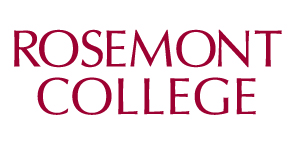MSHCA Degree Requirements
The Master of Science in Healthcare Administration degree is a 33 credit (11 course) program that, if enrolled without breaks, can be completed in two years or less. The program is facilitated in a 100% online format
The program includes a 3-credit thesis, and 30 credits of required program coursework.
Required Courses (33 Credits)
Each Course is 3 Credits
This course provides students with the tools to harness the resources of the current and emerging trends in the health information age. The course will focus on the use of IT applications to improve organizational efficiency, evaluate organizational effectiveness, and provide the basis for data-driven decision making by end-users.
The organization and structure of healthcare in the United States will be examined. Principles of the administration of healthcare organizations will be explored with emphasis on resources, system organization, and technology. Students will analyze the interaction between different healthcare organizations and social-environmental issues and the design implementation of healthcare delivery systems.
Students will undertake an examination of the legislative, regulatory, and political processes and their effect on the delivery of healthcare. This course discusses the role of healthcare communities in public policy issues and the analysis of emerging socioeconomic factors in medical markets and healthcare regulation.
This course provides students with a survey of the major legal issues impacting the administration of healthcare. Guest lectures will cover liability, licensure, malpractice, patient rights, JCAHO compliance, and regulatory factors. Students will also examine issues related to informed consent, confidentiality, liability exposure, and tort reform.
Students will examine the historical evolution and current state of healthcare systems in the USA, Canada, the EU, and Asia. Areas of study include the introduction to the various forms of provider models and service delivery systems found in private and public health sectors. The financing aspects of healthcare and their influence on healthcare delivery and quality are examined.
Students will undertake an in-depth analysis of ethical issues in healthcare, including end of life decisions, organ retrieval and donation, informed consent, medical experimentation, reproductive issues, and confidentiality in testing.
Managing practices involving decision making, resource allocation, conflicts of interest, and codes of professional ethics in ever-changing health care environment are examined. Principles of ethical reasoning from various philosophical schools are explored.
This course introduces students to the concepts and methods of community health improvement and the role that assessment plays in providing quality healthcare. The course will cover important community health topics including systems thinking that leads to coordination of healthcare and public health activities to achieve community health goals; the nature of health and its determinants; the use of quantitative and qualitative methods; data analysis; and community.
This course will provide an introduction and overview of leadership, management, and organizational behavior in varying healthcare communities, reflecting the uniqueness of each sector. The course integrates theory with practice through readings, case studies, lectures, written assignments, and guest presentations from different organizational perspectives.
Assessment, practice, and development of leadership, managerial, and organizational skills will be accomplished through team exercises and small group work. Students will examine how best to respond to emerging trends in the Healthcare industry.
* The Global Study (MGT 6715) may be taken in lieu of HCA 6009.
